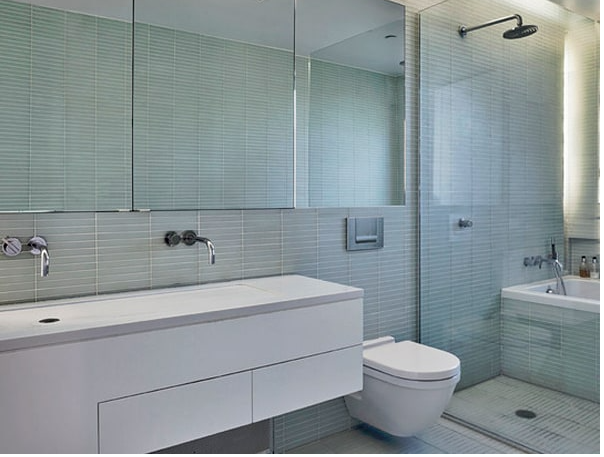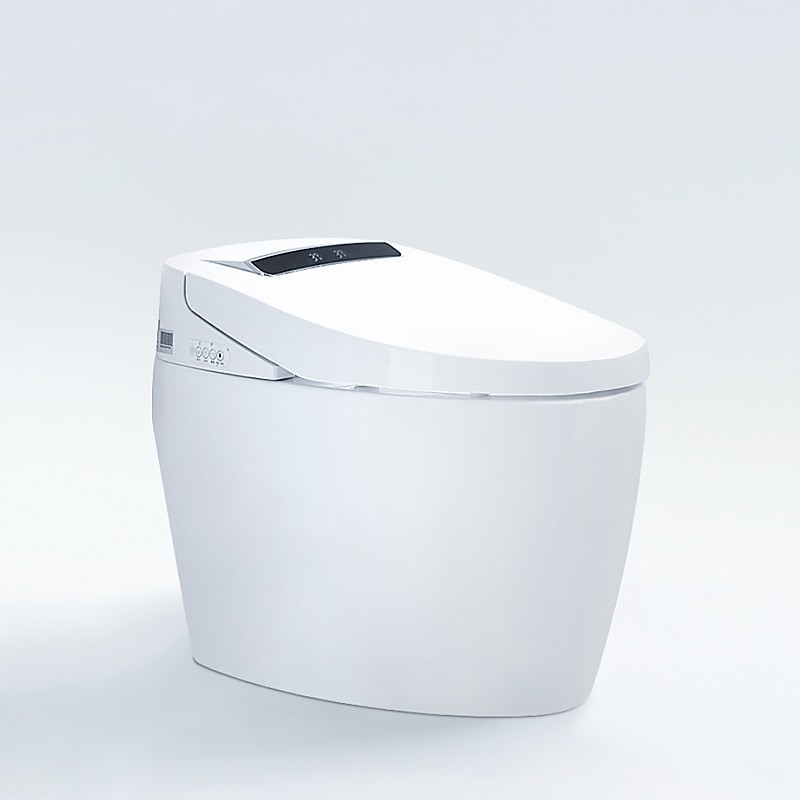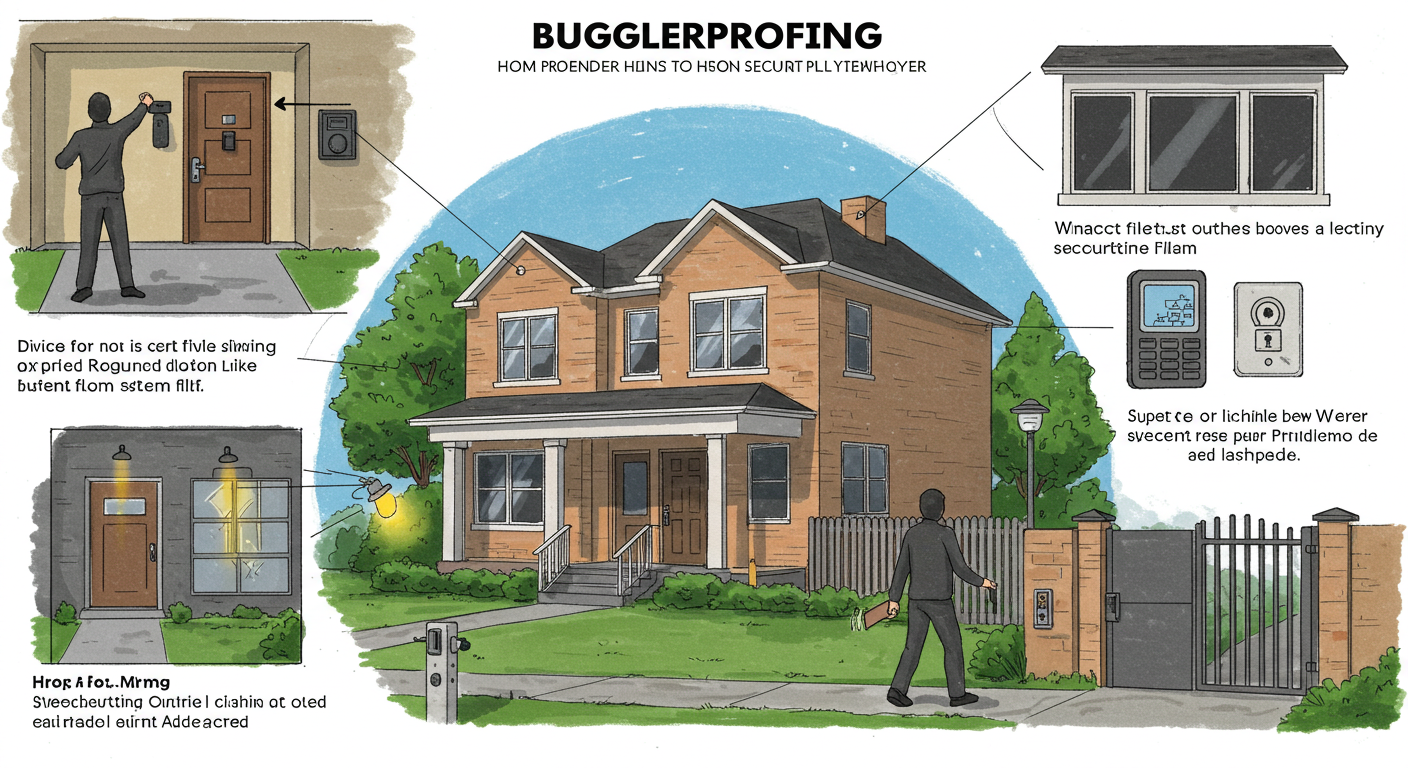Home improvement
Why Homes Require Plumbing Repairs from Time to Time

Introduction
A reliable plumbing system is essential for the comfort and functionality of any home. However, even the most well-maintained systems can develop issues over time. Understanding why homes require plumbing repairs and how to address these issues promptly can help homeowners maintain their systems and prevent costly damages. This article delves into the common reasons for plumbing repairs, the types of issues that frequently arise, and the importance of timely interventions to ensure a well-functioning home.
Aging Infrastructure
One of the most common reasons homes require plumbing repairs is the natural aging of the plumbing infrastructure. Over time, pipes, fixtures, and appliances can deteriorate, leading to various issues.
Common Problems:
- Corrosion: Metal pipes, particularly galvanized steel, can corrode over time, leading to leaks and reduced water quality.
- Wear and Tear: Fixtures such as faucets and showerheads can wear out, resulting in drips and leaks.
- Material Degradation: Older plumbing materials may degrade, becoming brittle and prone to cracking.
Solutions:
- Regular Inspections: Conduct regular inspections to identify signs of wear and tear early.
- Pipe Replacement: Consider replacing old, corroded pipes with modern, durable materials such as PEX or copper.
- Upgrading Fixtures: Replace outdated fixtures with new, efficient models to improve performance and reduce water wastage.
Hard Water and Mineral Buildup
Hard water, which contains high levels of minerals like calcium and magnesium, can lead to significant plumbing issues over time. These minerals can accumulate inside pipes and fixtures, causing blockages and reducing efficiency.
Common Problems:
- Clogged Pipes: Mineral deposits can build up inside pipes, reducing water flow and leading to clogs.
- Appliance Inefficiency: Water heaters, dishwashers, and washing machines can become less efficient due to scale buildup.
- Damaged Fixtures: Faucets and showerheads can become clogged with mineral deposits, affecting their performance.
Solutions:
- Water Softeners: Install a water softener to reduce the mineral content in the water, preventing buildup.
- Regular Cleaning: Clean fixtures and appliances regularly to remove mineral deposits.
- Descaling Treatments: Use descaling solutions to remove buildup from pipes and appliances.
Tree Root Intrusion
Tree roots can cause significant damage to plumbing systems, particularly in older homes with clay or cast iron pipes. Roots seek out moisture and can infiltrate pipes, causing blockages and leaks.
Common Problems:
- Blocked Pipes: Tree roots can grow into pipes, obstructing water flow and causing backups.
- Cracked Pipes: The pressure from growing roots can crack and break pipes, leading to leaks and water damage.
- Sewer Line Damage: Tree roots can infiltrate sewer lines, leading to severe blockages and potential sewage backups.
Solutions:
- Regular Inspections: Schedule regular inspections to detect early signs of root intrusion.
- Root Barriers: Install root barriers to prevent tree roots from reaching pipes.
- Pipe Lining or Replacement: Repair damaged pipes with trenchless pipe lining or replace them with modern materials.
Seasonal Changes
Seasonal changes, particularly freezing temperatures in winter, can cause significant stress on plumbing systems. Frozen pipes can burst, leading to extensive water damage.
Common Problems:
- Frozen Pipes: Water inside pipes can freeze and expand, causing pipes to crack or burst.
- Thawing Issues: Rapid thawing can lead to pressure changes and pipe bursts.
- Water Heater Strain: Water heaters work harder in cold weather, increasing the risk of failure.
Solutions:
- Pipe Insulation: Insulate exposed pipes to protect them from freezing temperatures.
- Heat Tape: Use heat tape on vulnerable pipes to prevent freezing.
- Proper Maintenance: Maintain water heaters and ensure they are functioning efficiently to handle increased demand.
Normal Usage and Human Error
Daily usage and human error can also contribute to plumbing issues. Misuse of plumbing fixtures and systems can lead to problems that require repairs.
Common Problems:
- Clogged Drains: Improper disposal of grease, hair, and other debris can lead to clogs.
- Fixture Damage: Rough handling or improper use of fixtures can cause damage.
- Sewer Blockages: Flushing inappropriate items like wipes and sanitary products can block sewer lines.
Solutions:
- Proper Use Education: Educate household members on proper use and disposal methods.
- Drain Covers: Install drain covers to catch hair and debris before they enter the plumbing system.
- Regular Maintenance: Schedule regular maintenance to keep the plumbing system in good working order.
Importance of Timely Plumbing Repairs
Addressing plumbing issues promptly is crucial for maintaining the overall functionality and safety of the home. Delaying repairs can lead to more severe problems and higher repair costs.
Benefits of Timely Repairs:
- Prevent Water Damage: Prompt repairs can prevent leaks from causing extensive water damage to walls, floors, and ceilings.
- Maintain Water Quality: Addressing issues quickly ensures that water remains clean and safe for use.
- Reduce Utility Bills: Fixing leaks and inefficiencies can lower water bills and improve system efficiency.
- Extend System Lifespan: Regular maintenance and timely repairs extend the lifespan of the plumbing system, reducing the need for costly replacements.
Choosing Professional Plumbing Services
While some minor plumbing repairs can be handled with DIY methods, professional plumbing services offer several advantages:
Expertise: Professional plumbers have the training and experience to accurately diagnose and fix a wide range of plumbing issues. They can identify the root cause of problems and provide long-lasting solutions.
Advanced Tools: Plumbers in Wheeling use specialized tools and equipment that are not typically available to homeowners. These tools allow them to perform tasks more efficiently and effectively, such as locating hidden leaks or clearing stubborn clogs.
Quality Repairs: DIY repairs may provide temporary relief but often fail to address the underlying problem. Professional plumbers ensure that repairs are thorough and durable, reducing the likelihood of recurring issues.
Safety: Plumbing work can involve risks, such as exposure to hazardous materials and potential water damage. Professional plumbers are trained to handle these risks safely and effectively.
Compliance with Codes: Professional plumbers are familiar with local building codes and regulations, ensuring that all repairs and installations meet the required standards.
Conclusion
Homes require plumbing repairs from time to time due to aging infrastructure, hard water and mineral buildup, tree root intrusion, seasonal changes, and normal usage. Understanding the common issues that arise and the importance of timely repairs can help homeowners maintain their plumbing systems and prevent costly damages.
By choosing professional plumbing services, homeowners can benefit from expert knowledge, advanced tools, and high-quality repairs that ensure the longevity and efficiency of their plumbing systems. Regular maintenance and proactive measures are key to keeping the plumbing system in optimal condition, providing peace of mind and comfort in daily life.
Home improvement
Is a Heated Seat Bidet Toilet Safe? Common Misconceptions

Heated seat bidet toilets feature various high-tech functionalities, such as adjustable water temperatures, air dryers, and, of course, heated seats. So, they have gained significant popularity over the years, offering users a more comfortable and hygienic bathroom experience.
However, as with any new technology, safety concerns often arise, particularly for households with children or elderly members.
In this article, we will explore common safety concerns and myths about heated seat bidet toilets, focusing on how they affect households with children, seniors, or individuals with specific needs.

1. Common Misconceptions About Heated Seat Bidet Toilets
Despite their growing popularity, several myths about heated seat bidet toilets still exist. Let’s take a look at some of the most common misconceptions:
- Misconception 1: They Are Expensive to Run
A common myth is that heated bidet toilets will significantly increase your electricity bill. However, most of these toilets are energy-efficient, and the heating element consumes only a small amount of energy. The cost of using a heated seat bidet toilet is generally far less than that of running high-power appliances like water heaters. - Misconception 2: They Are Difficult to Install
Some people assume that installing a heated seat bidet toilet requires complex plumbing or electrical work. Most bidet toilets are easy to install, with many models designed for DIY setup. Some even come with plug-and-play functionality, making the installation process simple and quick. - Misconception 3: They Are Only for Luxury Bathrooms
While heated seat bidet toilets may feel like a luxury item, they are available at a range of price points to suit different budgets. Affordable models provide the same benefits as higher-end versions, so you don’t have to spend a fortune to enjoy the comfort and hygiene benefits.
If you’re looking to explore various types of toilets, consider checking out a list of top toilet manufacturers to find high-quality options for your home.
2. Are Heated Seat Bidet Toilets Safe for Children?
One of the most common concerns parents have when considering a heated seat bidet toilet is whether it poses a risk to young children. The main worry is that the heated seat might become too hot and cause burns. However, here are several ways in which these toilets ensure safety for kids:
- Adjustable Temperature: A heated seat bidet toilet offers customizable seat warmth settings, which are typically mild (ranging from 30°C to 40°C). This ensures the seat remains comfortable for both adults and children without overheating. The ability to control the seat’s temperature helps to prevent any risk of burns.
- Built-In Safety Features: High-quality models often come with safety mechanisms that prevent the seat from becoming too hot. For example, once the seat reaches a preset temperature, the system will stop heating automatically or adjust the warmth to ensure safe usage. This feature is especially beneficial in homes with children.
- Supervision for Younger Children: While heated toilets are safe for older children, toddlers or very young kids should always be supervised when using any bathroom fixture, including the toilet with a bidet and a heated seat. Supervision ensures safety, and parents can adjust the settings to meet the comfort and safety needs of their children.
3. Are Heated Seat Bidet Toilets Safe for the Elderly?
For elderly users, heated seat bidet toilets can provide comfort and convenience. However, many older adults may have concerns about the new technology. Let’s explore why a bidet toilet with a dryer and heated seat can be beneficial and safe for seniors:
- Enhanced Comfort: The warmth from a heated seat bidet toilet makes it easier for elderly individuals to sit down and stand up. Cold toilet seats can be uncomfortable, especially for those with arthritis or poor circulation. The heated seat provides a soothing experience that helps reduce discomfort during use.
- Bidet Functionality for Hygiene: For older adults, using a bidet function can improve personal hygiene, as it reduces the need for excessive wiping, which might be painful or challenging. The warm water bidet toilet provides a gentle cleaning experience, offering improved hygiene without the risk of irritation that could come from excessive wiping.
- Electric Safety: Many users are concerned about the risk of electric shock when using a heated bidet toilet, especially seniors. Fortunately, these toilets are equipped with ground fault circuit interrupters (GFCI) to automatically cut off power if an electrical fault is detected, greatly reducing the risk of electrical hazards.
- Elderly-Friendly Design: Many modern toilets with bidet and heated seat models are designed with seniors in mind. For example, some toilets come with easy-to-use remote controls or buttons, allowing elderly individuals to operate the toilet with minimal effort.
4. Are Heated Seat Bidet Toilets Safe for People with Sensitive Skin?
Sensitive skin can be a concern for some individuals, particularly when it comes to new products that come into direct contact with the skin. However, heated seat bidet toilets can be gentle and even beneficial for people with sensitive skin:
- Gentle Water Spray: The water spray from a warm water bidet toilet is gentle and adjustable. This is ideal for individuals with sensitive skin, as the water stream is much less abrasive than traditional toilet paper. The soft, regulated spray minimizes the risk of irritation, rashes, or chafing.
- Comfortable Heated Seats: The warm seat itself can be soothing for people with sensitive skin. In cold weather, a heated seat offers immediate relief from cold toilet seats that might cause discomfort. As long as the temperature is set to a comfortable level, there’s no risk of overheating the seat or causing skin issues.
- Material Safety: Many heated bidet toilet models are made from hypoallergenic materials that are safe for people with sensitive skin. If skin sensitivity is a concern, it’s important to look for products that highlight these features.
5. Can a Heated Seat Bidet Toilet Overheat?
The fear of a heated seat bidet toilet becoming too hot is another common misconception. While some people worry that a heated seat could burn them, modern designs ensure safety in the following ways:
- Thermostatic Control: Heated bidet toilets are equipped with thermostats that regulate the seat temperature, keeping it within a safe and comfortable range. The temperature is typically not hot enough to cause burns, even with prolonged sitting. If the seat ever becomes too warm, most models will automatically adjust or shut off to maintain a safe level.
- Built-in Sensors: Many bidet toilets are designed with safety sensors that monitor the seat’s temperature. If the system detects any issues, such as overheating, it will deactivate the heating element to prevent accidents. This ensures the toilet remains safe for everyone.
- Regular Maintenance: Overheating can occur if the system isn’t properly maintained. To avoid this, it’s recommended that you regularly check and maintain your toilet with a bidet and a heated seat. Most manufacturers will provide guidelines on how to keep the system in good working order.
Conclusion
In conclusion, heated seat bidet toilets are safe for people of all ages, including children and the elderly, when used properly. They are designed with safety features, such as adjustable temperatures and automatic shutoffs, to ensure a comfortable and safe bathroom experience.
By addressing common myths and concerns, it is helpful to clear up any doubts you may have about heated seat bidet toilets. They are not only luxurious but also reliable and safe when installed and used correctly, making them a great choice for modern households looking to enhance their bathroom experience.
Home improvement
Burglar proofing your home

When we think about home security, we often imagine high-tech alarm systems, locks on doors, and maybe even a big dog that barks at anything that moves. But there’s more to burglar-proofing your home than just the basics. The truth is, many homes experience burglaries every year, resulting in not only financial losses but the emotional pain that comes with having your privacy invaded and your safety compromised. Fortunately, there are practical ways to burglar-proof your house that go beyond just installing a security system for the home. Here’s a fresh approach to making your home safer, one step at a time.
The Power of Simple, Everyday Deterrents
Most burglars aren’t looking to break into homes that are clearly secured. They tend to look for places that are easy targets. One of the best things you can do to deter a potential thief is to make your home look occupied—even when you’re not home.
Start by ensuring your yard is well-lit, especially around entry points. Motion-sensing lights can be a great way to surprise intruders, making them think twice before approaching your home. Next, don’t forget about windows and doors. Keep your blinds and curtains closed when you’re not around. Burglars love to scout houses for easy access, and a dark, empty room with a view to an open window is an invitation.
You might also want to consider getting a couple of inexpensive “fake” security cameras or even placing a security system sticker on your window. While these aren’t as effective as an actual security system for the home, they can give the illusion that your house is being monitored, which might be enough to scare off some criminals.
Reinforcing Your Doors and Windows
Your doors and windows are your first line of defense. But surprisingly, many burglars gain access through weak points in these areas. To burglar-proof your home, it’s crucial to make sure your doors and windows are as secure as possible.
Start with your front door. A solid wood or metal door is much harder to break through than a hollow one. Also, make sure the hinges are on the inside, as this makes it much more difficult for burglars to tamper with them. For extra protection, install a deadbolt lock along with a high-quality doorknob lock. Don’t forget to secure the door frame and strike plate with long screws to prevent someone from kicking it in.
Windows are another easy target, especially those that are left open or unlocked. A simple trick is to place a dowel or metal bar in the window track to prevent it from being easily lifted. Also, be mindful of the locks you use. Sliding glass doors, for example, are vulnerable, so consider a security bar or a locking pin to secure the track.
Landscaping and Visibility
Believe it or not, your landscaping could play a major role in burglar-proofing your home. Overgrown bushes, tall trees, and unkempt gardens may provide cover for burglars to hide in while they plan their move. Trim back any shrubbery that blocks the view of your doors or windows from the street. This not only helps you keep an eye on the exterior of your home but also makes it more difficult for a burglar to approach without being seen.
Consider adding thorny bushes or plants around windows and doors. Not only do they make it more difficult to break in, but they also serve as a visual deterrent. If someone sees a bush full of thorns, they might think twice about approaching.
Utilizing Technology to Your Advantage
While simple deterrents like lighting and landscaping are effective, don’t overlook the power of technology when it comes to burglar-proofing your home. A modern security system for the home can do much more than just trigger an alarm if a burglar enters. Many systems now come with features like surveillance cameras, remote monitoring via smartphone, and even doorbell cameras that allow you to see and talk to people at your front door, even when you’re not at home.
You can also install smart locks that allow you to lock and unlock your doors from your phone. This is especially useful if you’re coming home late at night and want to ensure that all your doors are locked, or if you want to grant someone access while you’re away. Smart doorbells, which include video and motion sensors, allow you to keep an eye on who’s approaching your home, helping you spot suspicious behavior before it escalates.
Secure Your Garage and Outbuildings
Many people forget to secure their garages or outbuildings, but these areas can be an easy entry point for burglars. A garage door opener, for instance, can be hacked or simply broken into. Make sure your garage door is equipped with a sturdy lock and avoid leaving keys, valuables, or tools in plain sight inside. Install a motion sensor light in the garage to make it less inviting for burglars at night.
If you have a shed or other outbuildings on your property, treat them with the same level of care as your home. Secure windows and doors with high-quality locks, and consider installing motion lights or even a small alarm system.
Building a Community of Awareness
One of the most effective ways to prevent crime in any neighborhood is to foster a sense of community awareness. Talk to your neighbors about looking out for each other, especially if you’re planning to be away for an extended period. Burglars often target homes that are isolated or unmonitored, so having a neighborhood watch in place can go a long way in keeping your property safe.
Sharing information about unusual activity or suspicious people in the area can help prevent crimes before they happen. Encourage neighbors to report any strange vehicles, unfamiliar faces, or anything that seems out of place.
Conclusion
Burglar-proofing your home doesn’t require a major overhaul or expensive technology; sometimes, it’s the simple things that make the biggest difference. By implementing a combination of practical steps, such as reinforcing doors and windows, adding lighting, securing your garage, and utilizing technology, you can significantly reduce your chances of becoming a victim of burglary. Remember, burglars are looking for easy targets, so make your home one that’s too much trouble to mess with. With a little effort and a few thoughtful changes, you can make your home a safer, more secure place to live.
Home improvement
Personalised Interiors: Creating a Home That’s Uniquely You

A home should be more than just a place to live—it should be a reflection of your personality, lifestyle, and values. Personalised interiors go beyond trends to create spaces that feel authentic, comfortable, and uniquely yours. Whether you’re designing a new home or revamping your existing space, thoughtful choices in colours, materials, and furnishings can make all the difference.
The Power of Personalisation in Interior Design
Personalised interiors allow homeowners to express their individuality while enhancing the functionality of their spaces. Customising your home isn’t about following design rules—it’s about curating a space that aligns with your tastes and daily routines.
A personalised home should reflect:
- Your Lifestyle: The way you live should shape your space. Whether you enjoy hosting lively gatherings with friends, need a peaceful retreat to unwind after a long day, or require a productive and functional home office, your design should reflect and support your daily routines and priorities. Creating a home that complements your lifestyle ensures comfort and ease in every aspect of your life.
- Your Interests: Your home is an extension of who you are. Displaying art collections, travel souvenirs, cherished books, or family heirlooms can infuse your space with personality and meaning. These elements not only add character but also tell your unique story, making your home feel truly yours while sparking conversations with visitors.
- Your Aesthetic Preferences: Your interiors should resonate with your sense of style. Whether you’re drawn to clean lines and simplicity in a minimalist design, enjoy the bold mix-and-match approach of eclectic decor, or prefer the timeless elegance of classic styles, your choices should make you feel relaxed, inspired, and right at home in your surroundings.
Key Elements of a Personalised Home
1. Colour Psychology and Mood
Colour plays a significant role in setting the tone of your home. Different hues evoke different emotions—soft blues and greens create a calming atmosphere, while bold reds and yellows add energy and vibrancy. Consider using accent walls or statement furniture to introduce colours that resonate with your personality.
2. Custom Furniture and Unique Pieces
Mass-produced furniture may serve its purpose, but investing in bespoke pieces can elevate your home’s uniqueness. Custom-built shelving, one-of-a-kind coffee tables, or handcrafted décor items can add a distinct personality to your interiors.
3. Meaningful Décor and Accessories
Personalised interiors often incorporate meaningful décor elements. Displaying travel souvenirs, vintage finds, or artwork from local artists can transform a generic space into something truly personal. Even everyday items like throw pillows and rugs can be chosen with patterns and textures that reflect your style.
4. Layering Textures for Depth and Warmth
A personalised home isn’t just about visual appeal—it’s also about how it feels. Incorporating tactile diversity through materials like wood, stone, linen, and velvet adds dimension and warmth to a space. Mixing smooth and rough textures can create an inviting and balanced environment.
5. Lighting That Complements Your Space
Lighting is one of the most underrated aspects of personalisation. From statement chandeliers to warm bedside lamps, lighting can transform the ambience of a room. Layering different light sources—such as overhead lighting, task lighting, and ambient lighting—creates flexibility for different moods and activities.
Bringing It All Together with Expert Guidance
Creating a home that truly reflects your personality requires thoughtful curation, and professional expertise can help bring your vision to life. Novari Collective interior design services specialise in tailoring spaces to the unique preferences of homeowners, ensuring a cohesive and personalised outcome.
From selecting the right furniture to balancing textures and lighting, working with a professional ensures that every detail is aligned with your vision. Whether you prefer a modern aesthetic or a more traditional approach, expert designers can help translate your ideas into a well-executed design that feels uniquely yours.
A Reflection of You
Your home should be a reflection of you—your lifestyle, experiences, and preferences. By embracing personalised interiors, you can create a space that feels truly authentic and comfortable. Thoughtful details, curated décor, and professional guidance can transform any house into a home that tells your story. Ready to design a space that’s uniquely yours? Start by making intentional choices that align with your personality and daily life.
-

 GENERAL1 year ago
GENERAL1 year agoDiscovering the Artistic Brilliance of Derpixon: A Deep Dive into their Animation and Illustration
-

 Posts1 year ago
Posts1 year agoSiegel, Cooper & Co.
-

 Lifestyle1 year ago
Lifestyle1 year agoPurenudism.com: Unveiling the Beauty of Naturist Lifestyle
-

 Lifestyle1 year ago
Lifestyle1 year agoBaddieHub: Unleashing Confidence and Style in the Ultimate Gathering Spot for the Baddie Lifestyle
-

 HEALTH1 year ago
HEALTH1 year agoTransformative Health Solutions: Unveiling the Breakthroughs of 10x Health
-

 Entertainment1 year ago
Entertainment1 year agoGeekzilla Podcast: Navigating the World of Pop Culture, Gaming, and Tech
-

 Entertainment1 year ago
Entertainment1 year agoKhatrimaza Unveiled: Exploring Cinematic Marvels and Entertainment Extravaganza
-

 BUSINESS1 year ago
BUSINESS1 year agoUnlocking the Secrets to Jacqueline Tortorice Remarkable Career and Accomplishments
